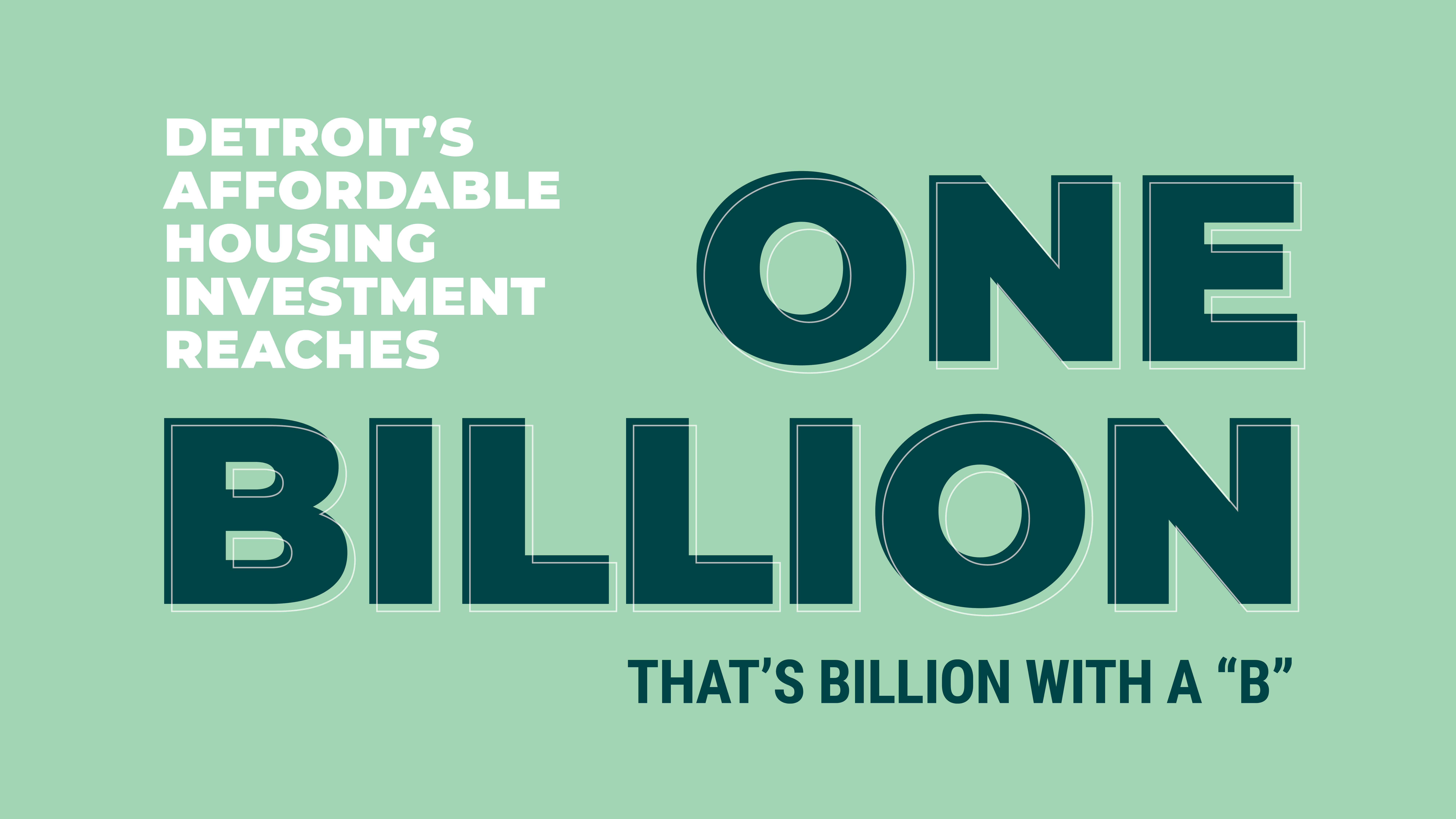The Big Solution
Detroit's plan is solving the affordable housing crisis through various community-centered initiatives. The city has adopted three key areas of action to tackle housing issues:
- Invested $1 billion in new affordable housing construction to provide renters affordable housing stock.
- Created pathways for current homeowners to stay by making needed repairs and decreasing tax burdens.
- Provided housing security for the unhoused, including access to medical and mental health services to clear pathways toward stable housing.
Defining the Terms
What is Affordable Housing?
Affordable housing is generally defined as housing where an occupant is paying no more than 30% of their gross income for housing costs, including utilities. Households paying above this threshold are considered housing cost-burdened. The Detroit Justice Center found that Black Detroiters are housing cost-burdened at higher rates than their white neighbors due to high housing costs and lower incomes. It was this type of wealth chasm that Detroit intended to address in its affordable housing agenda.
Average Median Income
Detroit's Average Median Income (AMI) for a single occupant is $30,000 annually. Most of Detroit’s pre-existing housing units have rents based on income levels between 31% to 50% AMI. A Detroit-commissioned study reported that the Detroiters who need the most help in finding affordable housing earn well below 30% AMI.
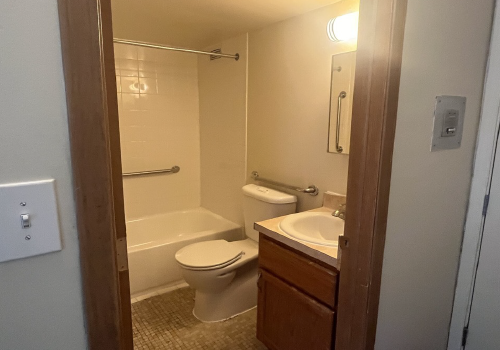
Elmwood Tower
1325 Chene St, Detroit, MI 48207 East Central
1 BR - $900 per month - 30% Income - 6 Vacant units & Open waitlist - AMI
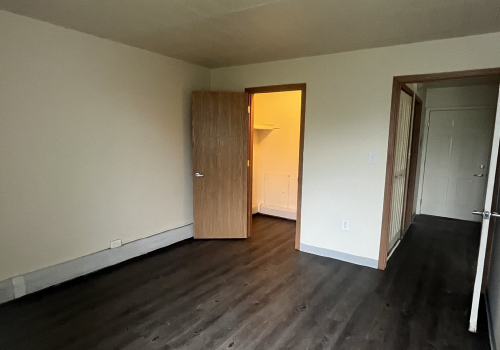
Elmwood Tower
1325 Chene St, Detroit, MI 48207 East Central
1 BR - $900 per month - 30% Income - 6 Vacant units & Open waitlist - AMI
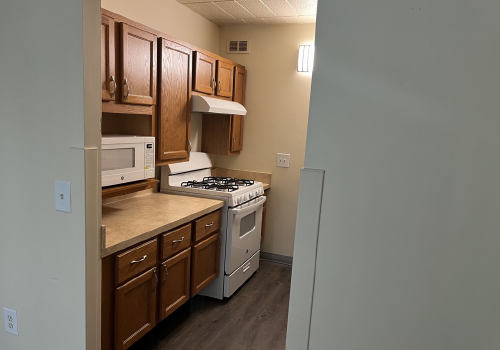
Elmwood Tower
1325 Chene St, Detroit, MI 48207 East Central
1 BR - $900 per month - 30% Income - 6 Vacant units & Open waitlist - AMI
Step One: Create a Protected Supply of Affordable Housing
In 2014, about 83,657 Detroit households could not afford market-rate housing without spending more than 30% of their income. Nationally, about 50% of renter households—more than 21 million—spent more than 30% of their income on housing in 2023. While Detroit had about 37,000 existing or planned affordable units, this still left a sizable gap of 46,000. The city needed a larger inventory of affordable units that addressed the needs of families as well as single occupancy.
To fill the city’s substantial affordable housing gap, Mayor Mike Duggan first turned toward new construction. Residents, particularly those who stayed when so many migrated away from Detroit, feared they would be priced out of the new affordable housing construction. Mayor Duggan emphasized, “Our most fundamental mission as a city is to make sure that the Detroiters who stayed during the tough times aren’t pushed out as the city comes back.” This meant his vision must include affordable housing where every Detroiter, regardless of their income or physical abilities, could live in quality housing that supports their needs at a rent they could afford.
Step Two: The $1 Billion Affordable Housing Investment
Mayor Duggan, together with City Council, created a five-year plan in 2018 with a major emphasis on increasing the affordable housing inventory. This vision includes building 71 multifamily housing projects, preserving 4,646 units for affordable housing, and renovating formerly vacant buildings to create 3,036 affordable housing units. All of Detroit's affordable housing will be protected for 30 years, meaning the rents cannot rise above 30% of Detroit’s AMI during these protected decades.
AFFORDABLE HOUSING MAP LEGEND
How Detroit Funded Its Programs
Detroit's major investor, the Detroit Housing for the Future Fund (DHFF), along with several funding partners, contributed to the $1 billion investment. The Affordable Housing Leverage Fund also committed $250 million to preserve 10,000 units of affordable housing and develop 2,000 additional new affordable housing units. The development costs for new construction are expected to total $1,009,177,000.
To implement this vision, Mayor Duggan and the City of Detroit expanded the Detroit Land Bank Authority (DLBA), the nation’s largest housing inventory. The Mayor began converting vacant apartment buildings and Land Bank homes into affordable rental housing. By 2015, the Land Bank expanded its reach by implementing eight new programs under its Auction and Own it Now platforms to place Detroiters into reclaimed homes.
Down Payment Assistance Program: A Pathway to Home Ownership
To help Detroiters achieve home ownership, the city created the Down Payment Assistance Program (DPA), which offers up to $25,000 to cover the costs of a down payment on a home purchase. To qualify, Detroiters must live in the city for at least one year. Those who lost their homes to tax foreclosures also qualify. The program is funded from $17.2 million from the American Rescue Plan Act (ARPA).
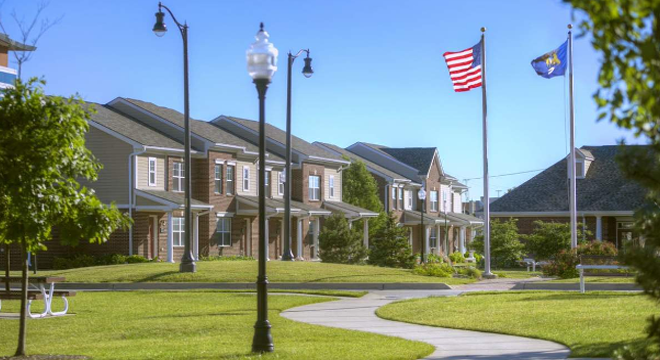
Cornerstone Estates
3200 John C Lodge Service Dr, Detroit, MI 48201
3 BR - $1172 per month - 2 Vacant units & Open waitlist - AMI: 80%
3 BR - $1400 - $1500 per month - 3 Vacant units & Open waitlist

Cornerstone Estates
3200 John C Lodge Service Dr, Detroit, MI 48201
3 BR - $1172 per month - 2 Vacant units & Open waitlist - AMI: 80%
3 BR - $1400 - $1500 per month - 3 Vacant units & Open waitlist

Cornerstone Estates
3200 John C Lodge Service Dr, Detroit, MI 48201
3 BR - $1172 per month - 2 Vacant units & Open waitlist - AMI: 80%
3 BR - $1400 - $1500 per month - 3 Vacant units & Open waitlist
Step Three: Providing Housing Security for the Unhoused
In 2014, Detroit’s homeless population had risen to about 16,200—nearly 2.4% of Detroiters living without stable housing. By 2017, thanks in part to the City’s cooperation with local nonprofits like Homeless Action Network of Detroit (HAND), that number decreased to just over 11,000 with unstable housing. The city focused on providing housing security for the unhoused, creating access to essential services that help people transition into stable housing.
Mayor Duggan and City Council designed a five-year strategic plan to “prevent and end homelessness.” The city developed eight action areas, including improving shelter facilities, increasing shelter staff, expanding affordable housing, and reducing youth and veteran homelessness. The plan was created through a partnership with the city's Housing and Revitalization Department, the Homeless Action Network of Detroit, and the Detroit Continuum of Care.
Pope Francis Center’s Bridge Housing Campus
The City of Detroit and Mayor Duggan collaborated with Homeless Action Network of Detroit, the Detroit Continuum of Care, and stakeholders to open the Pope Francis Center’s $40 million Bridge Housing Campus. The campus boasts 40 furnished apartments, a gym, an industrial kitchen, and laundry facilities. It serves as a pathway toward stable housing, where guests can stay for up to 120 days and receive intensive medical respite, psychological, addiction, social, and job-readiness services. The goal is for each resident to become physically, psychologically, and financially healthy, preparing for a successful transition into permanent and affordable housing.
What Does Mayor Duggan’s Affordable Housing Plan Mean for Detroit’s Future?
Detroit’s long-lasting, comprehensive affordable housing plan was created to serve the city for 30 years. The city will pay 70% of affordable housing costs to keep rents below market value. This approach is so successful that the city is repeating the process. “The City successfully renewed 10,000 of those housing units for another 30 years,” Mayor Duggan said. As of 2024, the City of Detroit will invest $6.1 million to extend Detroit’s affordable housing.
The affordable housing plan protects seniors and low-income residents from housing displacement while providing avenues to build Black wealth through homeownership. By addressing blight and vacancy through demolitions and renovations of empty buildings into affordable living units, Detroit’s affordable housing programs increased the viability and quality of life within its urban center.
The National Low Income Housing Coalition reports that “Affordable housing is the key to reducing intergenerational poverty and increasing economic mobility.” As of 2024, Detroit has more homeowners than renters, an almost 50% increase from 2022. Within this increase, Black homeowners, in particular, are receiving more home loans. Detroit’s affordable housing initiatives are an example to a nation experiencing housing insecurity and high foreclosure rates. By systematically addressing the issues surrounding housing and homelessness, Detroit successfully changed the landscape of its city, increasing Detroiters' ability to build generational wealth.
